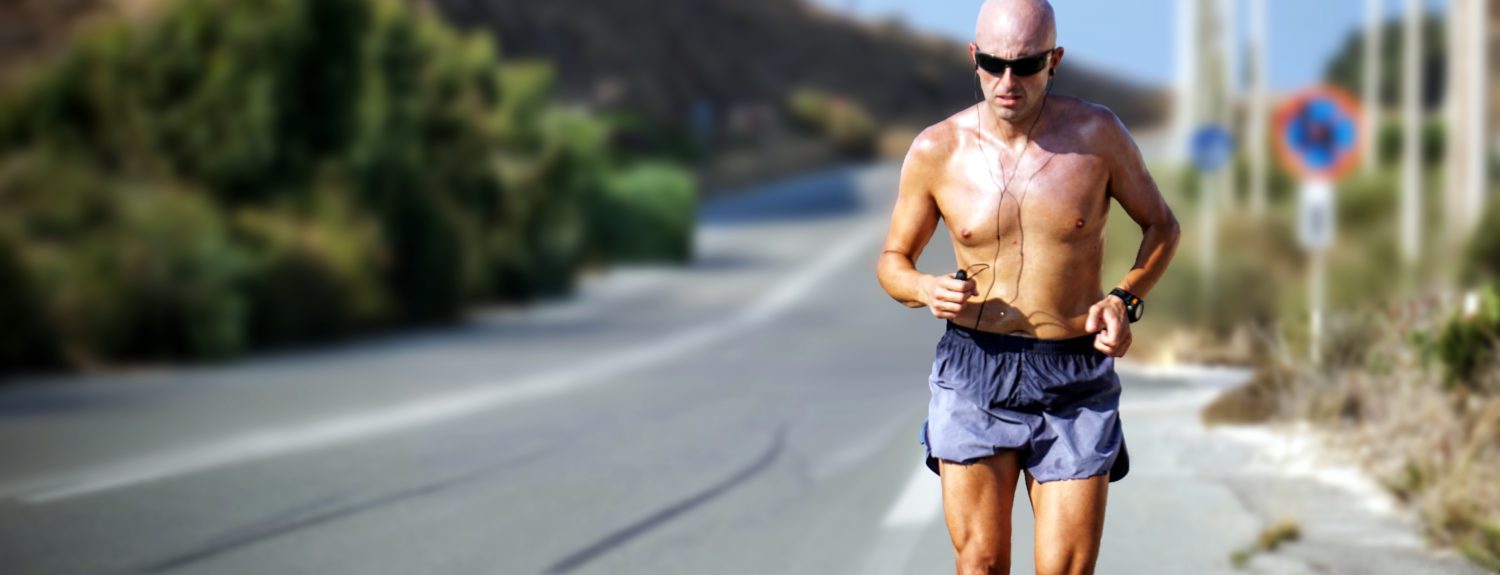Summertime. A time for the beach, tanning, blue skies, watermelon, grilling, and a whole range of outdoor activities. There’s nothing like longer hours of daylight to make the day seem better and brighter. The warmth allows for airy clothing and comfort, that is until you try to do any form of physical activity. Suddenly, your whole being becomes sluggish and you’re tired after just a fraction of your normal workout.
So what’s the deal? What’s going on in our bodies that slows us down?
In an interesting study by the European Journal of Physiology it was found that our bodies have an anticipatory reaction to heat. This means that even before your body reaches the core temperature associated with exhaustion (about 104°F), it will have already been operating at a lower level the moment you started your workout. This can be a frustrating function for many since they will not be performing at as high of a level as they might expect from themselves. The key is to remember that your body is helping you to not overheat and thus you will be able to workout longer.
Other factors that affect how we feel in warmer weather include humidity, dehydration, and body size. Humidity not only affects breathing, but also messes with your normal capability to sweat and thus regulate your body temperature. Although helpful for cooling, sweating can cause dehydration which will slow you down as your blood thickens and oxygen flows less freely. Lastly, the bigger you are (as a result of height, muscle, or fat) the faster you will heat up given that muscles produce heat and fat insulates.
Why is exercising in the heat worthwhile?
Exercising in the heat, though sometimes quite miserable, can have many positive effects on athletic ability. First off, heat training causes an increase in the amount of blood in your veins for future workouts. The extra blood is used to dissipate heat beneath your skin, and even in cooler weather leads to better performance. Your body also adapts to not sweat out as many electrolytes and learns to better regulate its core temperature. Altogether, this leads to better endurance and performance well after the summer is over.
What are some tips for working out in the summer?
In a US Army training protocol the process of heat acclimatization is described in detail for “soldiers who will be attending strenuous advanced military training in hot weather such as ABN / Ranger School or ROTC camp”. We can learn from this document that to adapt to the heat it takes about two weeks of consistent exercise. Once this exercise is discontinued the benefits only last for a week, so consistency is key. It is no surprise that hydration is an important aspect of acclimatization, but eating enough food, especially containing the necessary electrolytes lost through sweating, is also very important. Other general tips for beating the heat are working out during the cooler times of day (morning or evening) and wearing breathable, light colored exercise clothes.
What are you waiting for?
This summer trade in the gym for some outdoor activities. From biking, to CrossFit, to running, to walking, to sports with friends, there’s so much to do outdoors that will help bring your fitness to the next level!






































